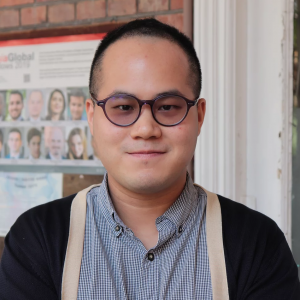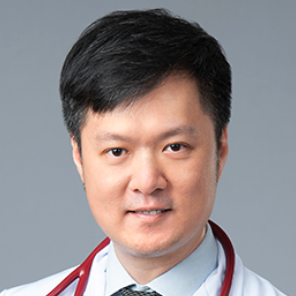e-News
Teaching Development Grants (TDG)
Teaching Development Grants (TDG)
 |
Adapting Immersive Gameplay and Design Thinking for Learning Family Caregivers’ Emotional Journey through End-of-Life Care and for Training Medical Students’ Grief LiteracyPrincipal Investigator: Mr Ki Sum Samson Wong, Medical Ethics and Humanities Unit, School of Clinical Medicine
|
 |
Augmented Reality Smart Glasses Technology for Immersive Learning in the Emergency Department (AGILE-1)Principal Investigator: Dr Pui Kin Lam, Department of Emergency Medicine, School of Clinical Medicine
|
 |
Developing Telemedicine Consultation Skills for Future DoctorsPrincipal Investigator: Dr Anderson Chun On Tsang, Department of Surgery
|
 |
Effectiveness of an Adaptive Learning System in Smart Environment for Nursing Students in Tracheostomy Emergency Care Management during the COVID-19 PandemicPrincipal Investigator: Dr Cecilia Hoi Mei Kong, School of Nursing
|
 |
Engaging BPharm Students as Partners in Teaching and Learning: Establishment of Online Learning Activity in Dietary Supplements
|
 |
Engaging Near-peer Tutors in Problem-based Learning: Impact on Teaching, Learning, and Career Development
|
 |
Enhancement of Musculoskeletal Clinical Skills Through Formative Assessment in an e-ClassroomPrincipal Investigator: Dr Tak Man Wong, Department of Orthopaedics and Traumatology
|
 |
Enhancing Care Prioritization Competency in Nursing Students through an Innovative Peer-to-peer Multi-patient Simulation – A Cross-University CollaborationPrincipal Investigator: Dr John Tai Chun Fung, School of Nursing
|
 |
Enhancing Clinical and Cultural Virtual Encounter in Health Professional Students: 3Is (Internationalization, Innovation, Interdisciplinary) in ActionPrincipal Investigator: Dr Polly Siu Ling Chan, School of Nursing
|
 |
Evaluate the Learning Satisfaction and Performance of Focused Client Interview and the User Experiences on Using Semi-humanoid Robot as Simulated Patient, Supplemented with Smartphone-based Voicebots in Nursing UndergraduatesPrincipal Investigator: Ms Cecilia Tin Yan Sit, School of Nursing
|
 |
The Impact of a Student-driven Near-peer Teaching Initiative for Medical Students: an Exploratory StudyPrincipal Investigator: Dr Julie Yun Chen, Department of Family Medicine and Primary Care
|
 |
Integrate Concepts of Biomedical Sciences through Digital Storytelling – From Basic Science to Clinical RelevancePrincipal Investigator: Dr Joanna Wen Ying Ho, School of Biomedical Sciences
|

|
An Integrative Module for First-year Pharmacy Students: Increasing Clinical Exposure and Enhancing Professional IdentityPrincipal Investigator: Ms. Jody Kwok Pui Chu, Department of Pharmacology and Pharmacy
|
 |
Online Peer Mentorship Programme under Covid-19 to Enhance Emotional Intelligence (EI) for Undergraduate Nursing Students Preparing Clinical PracticumPrincipal Investigator: Dr Joanna Hiu Ki Ko, School of Nursing
|
 |
Rethinking the Nursing Curriculum and Pedagogy to Reduce Students’ Psychosocial Impacts in the Remote Learning Transition under the COVID-19 PandemicPrincipal Investigator: Dr Angie Ho Yan Lam, School of Nursing
|
 |
Students as Co-Designers – Formalizing Student-Educator Partnerships in Curriculum and Pedagogy Co-CreationPrincipal Investigator: Dr Mei Li Khong, School of Clinical Medicine
|
 |
Student Engagement and Partnership (STEP) Program – A Pilot Project for the Paediatrics CurriculumPrincipal Investigator: Dr Sophelia Hoi Shan Chan, Department of Paediatrics and Adolescent Medicine, School of Clinical Medicine
|
 |
Using Game-based Virtual Reality with Instant Feedback to Enhance Nursing Students’ Situation AwarenessPrincipal Investigator: Dr Maggie Mee Kie Chan, School of Nursing
|